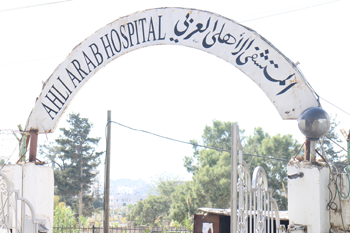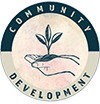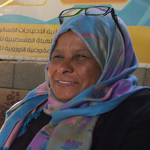ABM Archive Website
THIS WEBSITE CONTAINS ARCHIVE MATERIALS FOR HISTORICAL REFERENCE ONLY
For up-to-date information, including our latest appeals, news, and resources, please visit our current website.
2016 Al-Ahli Arab Hospital
 |
| ABM supports the Child Nutrition Project that operates from Ahli Arab Hospital. © Julianne Stewart/ABM, 2015. |
 |
This is part of the Community Development Program: Learn more about ABM’s Programs here
The Al-Ahli Arab hospital is run by the Anglican/Episcopal Diocese of Jerusalem and provides a tangible witness to the love of Christ in action. As part of the many services it delivers to the residents of the Gaza strip, Al-Ahli provides a Child Nutrition program for vulnerable families.
Last year, this program was delayed following the outbreak of war between Hamas militants and the Israeli Defence Force. Despite several months of overwhelming casualties presenting for treatment, as well as enduring shelling against the hospital itself, the staff of Al-Ahli showed a remarkable degree of commitment and resilience in re-launching the program after only a four month break.
This type of commitment is understandable, given the need that exists. According to a recent cross sectional study conducted by UNICEF and Vienna University, 29% of children in the Gaza strip suffer from stunting, as a result of malnutrition. Around 31% also suffer from anaemia, with levels of iron and zinc reportedly at critically low levels in these children.
Many more children are underweight, and suffer deficiencies in vitamin A, E and D. These problems were made more acute by the war in July 2014, which necessitated the closing of borders, restricting access to food and basic goods, and the loss of many livelihoods in the economic collapse that followed.
During her visit in 2013, ABM’s Programs Director, Julianne Stewart, was able to visit the hospital and speak with the hospital staff. They spoke of the children, the families and the challenges of the context in which they all live. They displayed incredible faith despite these difficulties, citing that they wished to be “living stones” for God’s service, demonstrating His compassion and love to all who come.
The Child Nutrition program seeks to alleviate the suffering of these children, and provide support to families struggling to cope. Throughout the course of three months, children are given a complete medical assessment by an expert Pediatrician and a program for nutritional support is developed. The hospital provides the necessary supplements and monitors the children for signs of improvement.
Treatment for illness and disease such as scabies, parasitic infection, bronchial asthma, rickets and congenital heart disease is also given free of charge, along with parental nutrition education for sustained health.
Your support of this project will make an enormous difference in the lives of the most vulnerable members of the Gaza strip.
PS001LH needs $41,265 in 2016 (tax-deductible)
HOW TO DONATE
You can make an online donation to this project by selecting Palestine: Gaza Al Ahli Arab Hospital
from the full project list.
Alternatively, for donations by cheque/money order (made out to the Anglican Board of Mission – Australia), telephone or email, view contact details here. Please don’t forget to include the project name and/or code with your payment details.
Gifts to ABM will be applied to the support of project(s) selected. In the unlikely event of the project being oversubscribed or not proceeding to completion, donations will be applied to a similar project to the one(s) selected.
PROJECT UPDATE
September 2016 – Dr Julianne Stewart made a visit to our partner in the Gaza Strip earlier this year. She travelled around some of the communities which participate in the Child Nutrition program, and met some of the parents and children who are benefiting from this assistance. Read more.
PROJECT UPDATE

February 2016 – During her recent monitoring visit to ABM’s partner, the Ahli Hospital in the Gaza strip, ABM’s Programs Director, Dr Julianne Stewart, met with many inspirational people. One such person was Meayssa Al Hasanet, Director of the Community-based organisation (CBO) Vision Association Development. Read more.
< Back


